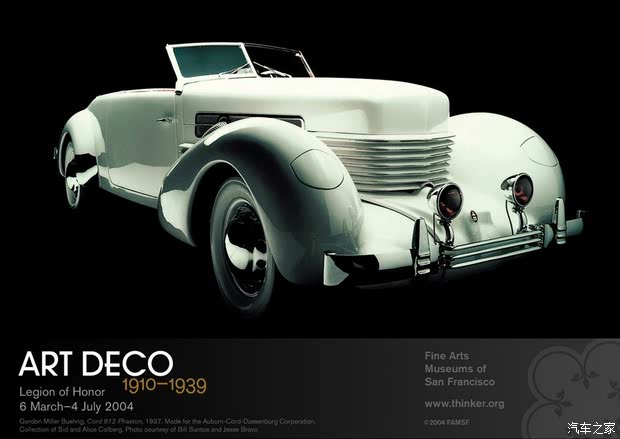The Evolutionary Journey of Car Brands: From Industrial Revolution to Technological Masterpieces
The Evolutionary Journey of Car Brands: From Industrial Revolution to Technological MasterpiecesOver the past century, car brands have undergone a remarkable transformation from humble industrial creations to technological marvels. This evolution reflects the profound influence of the Industrial Revolution and the relentless pursuit of innovation that has characterized modern-day automotive design.At the dawn of the Industrial Revolution, car manufacturing was primarily driven by mass production, aimed at meeting the growing demands of a rapidly industrializing society. The first automobiles were crude, unsafe, and lacked any significant technological advancements. However, this period paved the way for future generations of cars, as engineers and designers began to explore new materials, fuel systems, and engine technologies.As the 20th century progressed, car brands such as Ford, GM, and Renault began to experiment with advanced technologies, including internal combustion engines, electric motors, and hybrid systems. These innovations not only improved driving performance but also made cars more efficient, quieter, and environmentally friendly.Today, car brands are at the forefront of technological innovation, with companies like Tesla and Audi leading the way in developing electric vehicles, autonomous driving systems, and connected vehicle technology. These developments reflect a shift from traditional manufacturing to a more integrated and intelligent approach to transportation, embodying the spirit of continuous evolution characteristic of the modern automotive industry.
In the annals of history, car brands have played a pivotal role, symbolizing not only the pinnacle of technological advancement but also the evolution of societal values and transportation paradigms. This essay delves into the fascinating story of how these brands have evolved from humble beginnings to become synonymous with quality, innovation, and luxury.
The dawn of the automobile age marked the birth of the car brand, a time when visionaries like Karl Benz and Rudolf Diesel pioneered the idea of mass-produced vehicles that could be owned by ordinary people, revolutionizing daily commutes and changing the very fabric of society. These early innovators paved the way for future generations of car brands that would not just survive but thrive amidst the tumultuous industrial landscape.
As time progressed, car brands like Ford, General Motors, and Renault became household names, their factories churning out millions of vehicles each year. These brands epitomized efficiency, reliability, and affordability, setting standards that were emulated by competitors worldwide. They became symbols of American manufacturing prowess, cementing their place in the hearts and minds of consumers across the globe.
However, it wasn't just sheer volume that defined these brands; it was the innovative spirit that propelled them beyond mere commodity status. From the introduction of electric cars to the development of self-driving technology, car brands like Toyota, BMW, and Volkswagen have consistently pushed boundaries, pushing the envelope of what is possible on the road. These brands are not only at the forefront of innovation but also at the heart of sustainability, investing heavily in research and development to create eco-friendly vehicles that reduce carbon emissions and minimize waste.

The rise of social media and the digital age has had a significant impact on the way we perceive and interact with car brands. Companies like Nissan and Audi have leveraged social media platforms to engage directly with their customers, creating a sense of community around their products. This approach not only enhances customer loyalty but also fosters a deeper understanding of the brand's values and mission.
Moreover, as the global market becomes increasingly competitive, car brands are adopting strategies that cater to niche markets and emerging economies. From the launch of sub-compact models in developing countries to partnerships with local automakers in China, car brands are adapting to diverse demands while maintaining their commitment to quality, innovation, and sustainability.
In conclusion, car brands represent more than just a means of transportation; they are symbols of progress, innovation, and human achievement. From the early days of Karl Benz and Rudolf Diesel to today's cutting-edge technology, car brands have undergone a transformative journey that has shaped our world both tangibly and intangibly. As we look to the future, it is clear that the legacy of these brands will continue to inspire us, guiding us towards a cleaner, greener, and more connected future on our shared planet Earth.

随着全球化的不断发展,汽车行业已经成为当今世界最大的产业之一,汽车品牌的崛起和发展,不仅代表着技术的进步和创新,更是国家经济实力和文化的体现,本文将探讨汽车品牌的魅力与价值,通过案例分析来阐述不同品牌的特点和优势,同时用表格来展示一些重要数据。
汽车品牌是汽车产业的灵魂,它不仅代表着汽车的质量和性能,更是消费者心中的信任和忠诚度的体现,汽车品牌的魅力在于其独特的文化内涵和品牌价值,这些价值包括品牌的历史、技术、设计、服务等方面,在当今竞争激烈的市场环境下,汽车品牌已经成为了消费者选择购买的重要因素之一。
汽车品牌的魅力与价值
汽车品牌的魅力体现在其不断创新的精神和追求卓越的品质上,不同品牌有着不同的特点和优势,这些特点和优势吸引着不同类型的消费者,奔驰品牌代表着豪华和高端,其精湛的工艺和卓越的性能赢得了消费者的信任和喜爱;丰田品牌则注重实用性和可靠性,其车型经济耐用,深受消费者欢迎。
汽车品牌的价值不仅体现在产品上,还包括品牌形象、口碑、服务等方面,品牌形象是消费者对品牌的感知和评价,它是品牌长期积累的结果,口碑是消费者对品牌的评价和反馈,它是品牌信誉的重要体现,服务则是品牌与消费者之间的桥梁,良好的服务能够提升消费者的满意度和忠诚度。

案例分析
1、奔驰
奔驰作为世界上最著名的汽车品牌之一,其魅力在于其豪华和高端的定位,奔驰注重产品的设计和工艺,其车型外观典雅、内饰豪华,同时拥有卓越的性能和安全性,奔驰还注重品牌形象的建设,通过赞助体育赛事、文化活动等方式提升品牌知名度和美誉度。
2、特斯拉
特斯拉是一家新兴的电动汽车品牌,其魅力在于其创新和领先的技术,特斯拉注重产品的研发和创新,不断推出具有颠覆性的产品和服务,特斯拉的自动驾驶技术、电池技术等都处于行业领先地位,特斯拉的品牌价值在于其追求创新和追求卓越的精神。

汽车品牌的重要性
汽车品牌的重要性不仅在于其代表的产品质量和性能,还在于其对国家经济和文化的贡献,汽车品牌是国家经济实力和科技创新能力的体现,同时也是国家文化的重要组成部分,汽车品牌的崛起和发展,不仅能够带动相关产业的发展,还能够提升国家的国际竞争力和影响力。
汽车品牌的魅力与价值是汽车产业的重要组成部分,不同品牌有着不同的特点和优势,这些特点和优势吸引着不同类型的消费者,汽车品牌的魅力在于其独特的文化内涵和品牌价值,而品牌价值则体现在品牌形象、口碑、服务等方面,汽车品牌的崛起和发展,不仅代表着技术的进步和创新,更是国家经济实力和文化的体现,我们应该重视汽车品牌的发展,通过不断创新和提升品质来增强品牌的竞争力和影响力。
以下是一个关于全球知名汽车品牌及其相关数据的表格:
| 品牌名称 | 成立年份 | 总部所在地 | 主要市场 | 车型特点 | 年销售量(单位:万辆) | |
| 奔驰 | 1885年 | 德国斯图加特 | 全球 | 豪华、高端 | 逾百万 | |
| 丰田 | 1937年 | 日本东京 | 全球 | 经济耐用 | 超过千万 | |
| 宝马 | 1916年 | 德国慕尼黑 | 全球 | 运动性能 | 数百万 | |
| 特斯拉 | 2003年 | 美国加州圣马特奥 | 全球 | 创新技术 | 持续上升 | |
| 大众 | 1937年 | 德国沃尔夫斯堡 | 全球 | 家庭用车 | 数百万至千万不等 |
与本文知识相关的文章:



